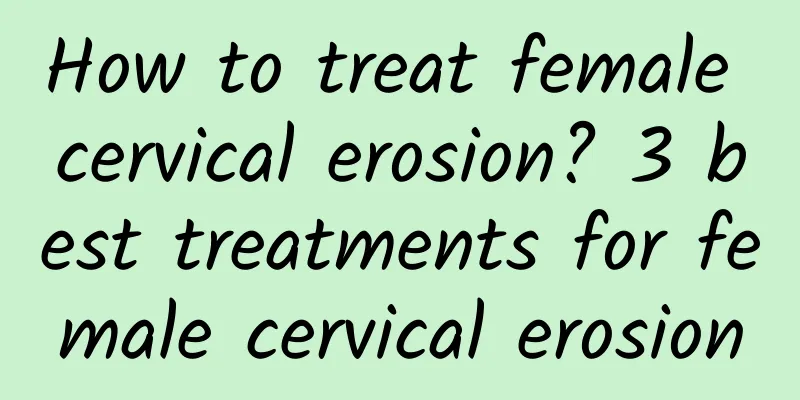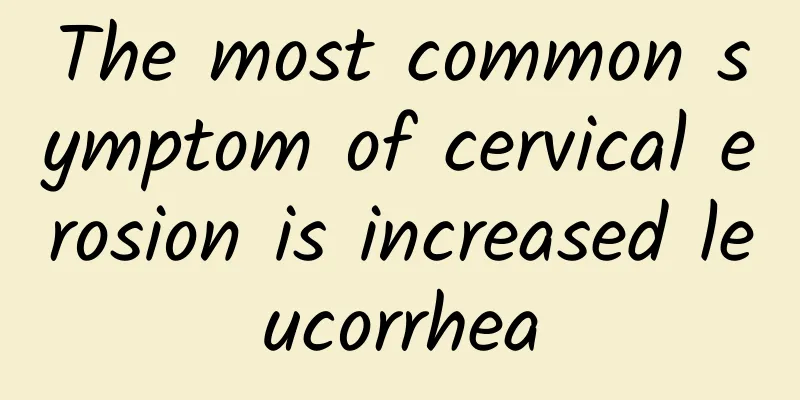Will myomectomy cause recurrence? Factors that increase the risk of uterine fibroids

|
Myomectomy, as the name implies, refers to the surgical removal of uterine fibroids. According to the current situation, due to the possibility of cervical cancer after total hysterectomy, the treatment of residual cancer is very difficult. Therefore, total hysterectomy is recommended for most patients, that is, direct removal of the uterus. So, will myomectomy be repeated? So far, the cause and pathogenesis of uterine fibroids are still unclear, and may be related to the following aspects. Factors that increase the risk of uterine fibroids: estrogen used in maternal pregnancy, obesity, African Americans, moxifen, etc. Factors that reduce the risk of uterine fibroids include: exercise, multiple births, menopause, oral contraceptives, etc. Sex hormones and their receptors Modern medicine believes that uterine fibroids are a hormone-dependent tumor. Uterine fibroids occur during the reproductive years, are rare before puberty, and shrink or disappear after menopause. Studies have shown that estrogen and progesterone synergistically promote the growth of fibroids. The main mechanism may be that estrogen in the follicular phase increases estrogen receptors on uterine smooth muscle, and then progesterone in the luteal phase promotes the mitotic activity of fibroids, thereby stimulating the growth of fibroids. Uterine fibroids have increased expression levels of growth factors and their receptors. They are considered to be mediators or effectors of increased ovarian hormones during uterine fibroid formation, but the possibility of abnormal primary regulation of one or more growth factors cannot be ruled out. Uterine fibroids usually contain an excess of extracellular mediators, mainly containing fibroblasts and their collagen types I and III, and the interaction of fibroid cells with fibroblasts and various growth factors provides a suitable microenvironment for the formation and growth of fibroids. Uterine fibroids are related to hormone levels in the body. If recurrence is possible after surgery, generally speaking, the recurrence rate of uterine fibroids after surgery is about 20-30%. The reasons for recurrence may be: small fibroids that were not discovered after surgery gradually increase under the action of sex hormones; or the patient has fibroid pathogenic factors, and new fibroids continue to occur. |
<<: What are the types of myomectomy? Common methods of myomectomy
>>: How does myomectomy work? Detailed explanation of myomectomy process
Recommend
Slow muscle training method does not turn muscles into fat
I never gained weight when I was a student, but a...
Habitual miscarriage is caused by these 5 factors
There are many reasons for women to have habitual...
How effective is cone excision for chronic cervicitis?
How effective is cone excision for chronic cervic...
Climbing stairs can burn fat! 5 tips to stay away from harm
The "2013 Taipei 101 International Hill Clim...
Can I take Chinese medicine for threatened abortion?
Nowadays, many young people do not know as much a...
Causes of pelvic inflammatory disease in women
Pelvic inflammatory disease is also a gynecologic...
Why is the vaginal discharge yellow? Check if the color is abnormal
If a woman has yellow leucorrhea, if it is only s...
Can abnormal itching of leucorrhea cause pregnancy?
Abnormal vaginal discharge and itching are usuall...
No abortion allowed after 14 weeks of pregnancy
Recently, the "Guangxi Zhuang Autonomous Reg...
What's wrong with late menstruation?
What happens if my period is late? Late menstruat...
How much taller can you grow during menstruation? Things to pay attention to during menstruation
A previous survey showed that the development of ...
What is uterine fibroids?
Uterine fibroids are the most common benign tumor...
It’s cold and your appetite is whetted? ! Drink the right hot drinks to stay balanced and not gain weight!
When a cold wave hits, your appetite increases, a...
Is endometrial thickening related to uterine fibroids?
Is endometrial thickening related to uterine fibr...
Rather than quick weight loss, you need a strategy to prevent weight gain
In the experience of helping nearly 2,500 people ...









